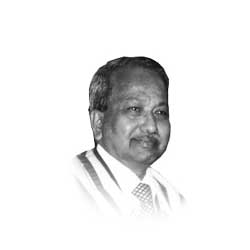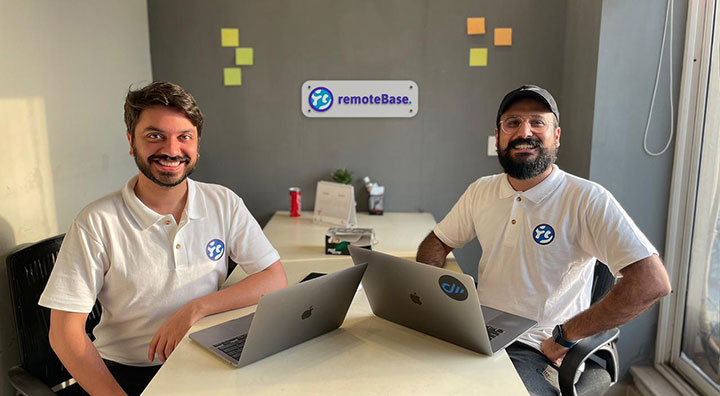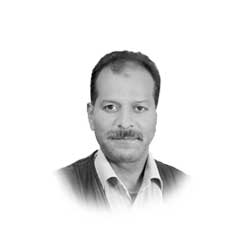By: Amd. Salahuddin Choudhry
Music sans borders understandably does not have to have any language. Music is a world within itself. It’s a language we all understand. As confided by Victor Hugo, “Music expresses that which cannot be put into words and that which cannot remain silent.” And for great pianist-composer Beethoven, “Music is a higher revelation than all wisdom and philosophy”.
If I were not a physicist, I would probably be a musician. I often think in music. I live my daydreams in music. I see my life in terms of music.”
Albert Einstein
Apart from yester-years, in a world today – like it or not – we remain beset with different kinds of afflictions that include ailments, epidemics, stress, phobia, hate, intolerance, abhorrence, and so on & so forth; this is where we need music, melody, colours to cure, heal, rehabilitate our pains & soul….in therapeutic uplift.
Music transcends afflictions…. music overcomes anger, hatred, intolerance….music compels to
think about racial discrimination…..music abhors inequality, shuns imperial or colonial mentality….music
ascends to ethereal levels, sometimes surreal: but, all toward harmony and love.
Music has no walls, music sees no boundaries, music does not limp, music binds no inanimate
object; music is heart spirit soul everything, yet music excels everything; there, music is life, simply that !
Music has existed for as long as mankind has found its voice, and quite possibly before. Every culture of the world has its own form of music, as distinct and unique to its area as language and cuisine.
In every part of the world, there are different scales and musical formats used, and these create
a form of music that has its own signature. Then, when we add in the cultural themes the variety of instruments, and the forms of voice singing, that can go along with it, music is a truly endless adventure.
A world without music would have no meaning at all to many, as it gives flight to the imagination
and life to everything. From the young to the old, all enjoy listening to music whether it is jazz, rock and roll, country, folk, blues or heavy metal, whether it is ghazal or geet, and qawwali.
On our Mother Planet, doing music and listening comes on a special day designated by the UN calling it World Music Day which is celebrated on 21st June to promote peace and spread goodwill through music; the theme this year is ‘Music at the Intersections’.
As a music lover, one can celebrate World Music Day in a variety of ways. One of the best ways of celebrating this Day is to spend the whole day and night listening to all the favourite songs. We search for new songs from YouTube or some other music platforms while feel adventurous music hunting. One just needs to keep a favourite dish ready and to enjoy all the songs we love to listen to.
Most of the concerts and music functions on this Day in most of the countries are free for everyone. You can join those music programs with friends and your beloved ones to celebrate and enjoy to the fullest. If you have a lot of friends who love to listen to music, you can invite them to your place for jam session or join them anywhere to enjoy the day altogether. Of course, we could always pick up an instrument and start adding our own voice to the choir!
Music as a core human experience and generative processes reflect cognitive capabilities. Music is often functional because it is something that can promote human well-being by facilitating human contact, human meaning, and human imagination of possibilities, tying it to our social instincts. Music is one of those things that we do spontaneously, reflecting brain machinery linked to communicative functions, enlarged and diversified across a broad array of human activities. Music cuts across diverse cognitive capabilities and resources, including numeracy, language, and space perception. In the same way, music intersects with cultural boundaries, facilitating our “social self” by linking our shared experiences and intentions.
Music & melody are a fundamental part of our evolution; we probably sang before we spoke in syntactically guided sentences. Song is represented across animal worlds; birds and whales produce sounds, though not always melodic to our ears, but still rich in communications.
The creative capability so inherent in music is a unique human trait. The art of melodies is strongly linked to motivation and to human social contact. Only a portion of people may play music, but all can, and do, at least sing or hum a tune. Music is like breathing—all pervasive.
Healing Power.
The healing power of music — lauded by philosophers from Aristotle and Pythagoras to Pete Seeger — is now being validated by medical research. It is used in targeted treatments for asthma, autism, depression, and more, including brain disorders such as Parkinson’s disease, Alzheimer’s disease, epilepsy, and stroke.
Live music has made its way into some surprising venues, including oncology waiting rooms to calm patients as they wait for radiation and chemotherapy. It also greets newborns in some neonatal intensive care units and comforts the dying in hospice.
While musical therapies are rarely stand-alone treatments, they are increasingly used as adjuncts to other forms of medical treatment. They help people cope with their stress and mobilize their body’s own capacity to heal. It’s not just a mood booster.
Music takes patients to a familiar home base within themselves. It relaxes them without side effects. It can also help people deal with longstanding phobias. There was one patient who had been pinned under concrete rubble at Ground Zero on 9/11. The woman, who years later was being treated for breast cancer, was terrified by the thermoplastic restraining device placed over her chest during radiation and which reawakened her feelings of being entrapped; there’s no goal but to calm, soothe and give people hope, something mysterious that we can’t quantify, call it soul medicine. Harp strokes can touch a deep place connecting all of us as human beings.
Music as Therapy.
The notion of music as therapy is based on ancient cross-cultural beliefs that music can have a “healing” effect on mind and body. Explanations for the therapeutic mechanisms in music have almost always included cultural and social science-based causalities about the uses and functions of music in society. Magical/mystical concepts of illness and “rational” medicine probably lived side by side for thousands of years. Not until the late-nineteenth and early-twentieth centuries were the scientific foundations of medicine established, which allowed the foundations of music in therapy to progress from no science to soft science and most recently to actual brain science.
Since the ancient times world relations existed between music and medicine; music, dance, rhythm and religious practice were all very important and early medical procedures. Important philosophers of the classic period already began with the scientific research of musical and medical questions. They offered medical care and taught the ancient knowledge of medicine, arts and music. Traditions of popular believe expressed the relations between music and medicine. Leonardo da Vinci presented a new style of artistic working and scientific knowledge. Also the basics of western music, like tonality was developed.
During the classic and romantic era, music and art were important parts of cultural life of the well-educated society. With the development of neurology, psychiatry and psychoanalysis more physicians and scientists were interested in musical questions. Questions about the role of music in human behavior and the ancient method to use music in medical treatment became popular. In the early 20th century, the music therapy was developed. Today the effects of music to the human brain are investigated with radio-nuclear methods. A lot of investigations showed the effect of music and music performance to humans. Music plays an important part in psychotherapy, therapeutic pedagogy and medical care, as the importance of music and music therapy increases.
The interaction of music and psyche constitutes a phenomenon, which is known to man since antiquity, and, for this reason, was ever since used for healing purposes. Varied in a manifold way, this great theme was handed down over the centuries to the present day, being a source of inspiration to music and the sciences. Modern musical therapy is, in the last analysis, based on these intuitive findings.
This essay emphasizes historical overview how music has dealt with the emotion and sensation of PAIN, that entailed medical research into the relationship of music and pain. Since the beginnings of western music humans have put their emotions into musical sounds. In some compositions, we find musical representations of pain. In Romanticism, artists begin to intrude into the soul of their audience. New expressive harmonies and styles touch the soul and consciousness of the listener. The relationships of music and pain is a wide open research field. Musicology has yet to embark on a general investigation of how musical compositions express pain and how that has developed or changed over the centuries. Music therapy, neuro-musicology and the performing arts medicine are scientific areas offering ideas for medical and musical research.
There are concepts – in theological, philosophical and medical science context – which relate to SOUL to be spiritual and mortal, and yet paradoxically to be material and mortal. The great philosopher Plato said, “Music gives a soul to the universe, wings to the mind, flight to the imagination and life to everything.” The search for the soul has, in other words, led to a deepening of scientific knowledge regarding the physiological and, in particular, cardiovascular and neurological nature of human beings. Our work enriches our shared understanding of the soul and we are better able to appreciate the significant role that the concept of the soul has played in the develop-ment of scientific, medical, and spiritual life.
Typhoid could be a painful dangerous contract like many other ailments of similar kind where late diagnosis and treatment can make things complicated. Here, I recall, my own story….
Middle of Winter – way back after my Matriculation – I found main door to my home was closed after returning from a Radio anchoring program almost midnight. Tired I fell asleep in the verandah couch. With high temperature and shivering, in wee-bit hours of morning I was told I got typho. My TT College Principal father – a man of piety and very caring, with euphonic voice – recited the ‘azaan’ and few verses from the Quran into my ears, and lo & behold half of my mental trauma and fever were gone in no time. The repeat – in therapeutic melody – caused the ‘typhoid’ vanish the next day like a miracle.
It may sound soothing & musical – and numerous studies advance the value of music therapy in management of patients – when medics or physicians vouch the efficacy of musical tunes & melodies and even wordings of an unknown language do wondrous therapy helping recover in such serious medical conditions & ailments as Anxiety & Depression, Alzheimer’s Disease, Schizophrenia, Rheuma-tism, Autism Spectrum Disorder, especially among children responding incredibly to therapeutic music.
As may be recalled by this scribe, a musical gig by ‘Zinga’ – the first ever Band of ‘ONE’ Pakistan of which I was the lead vocalist and played Bongo drums and maracas – worked like magic to a cyclone-devastated people of the coastal village when they all joined in singing & dancing to tidal-wash-away of stress & strain and the early stage of several water-borne diseases: indeed a pukka tablet in the Band’s memory-lane. Great music therapy!
Why just delve in the past; we owe a great deal to the fantastic role music & melody has played and continues to work wonders today – during the awful 18-months-long coronavirus pandemic causing thousands of fatalities and millions of infected – in the uplifting of mental conditions and treatment.
World Music Day celebrates music in all its forms and the impact it has had on the world and the human spirit which can indeed have a calming effect as we as a nation face the current malaise of nCv.
In a natural atmosphere, there’s nothing in the world like the sound of one’s favorite song coming on, it just gets right into the head and body and makes us move. Else it may take us on a journey to a faraway place and time !
We Love Music in Pakistan.
Pakistan, over many ages, inherited a number of rich traditions in music, an art form that plays a role in almost every facet of life, be it in the expression of religion, the interpretation of poetry, or the celebration of a marriage….both vocal and instrumental.
The most popular form of (semi-classical) music is the qawwali, the music of Sufi mystics, originally sung in a place of worship such as the shrine of a particular saint, or any place outdoors which has been the spirit of the World ‘Make Music’ Day. It is structured in a manner that the soloist is juxtaposed with a chorus. The chorus reinforces the message in the music by constantly repeating a phrase, embellishing and emphasizing it…. sung to a compelling rhythm-based fast-moving tones to inspire the audience.
By enhancing the message of mystical poetry, and by providing a powerful rhythm suggesting the ceaseless repetition of GOD’s name (zikr), the music of qawwali has a religious function: to arouse mystical love, even divine ecstasy, which is the core experience of Sufism.
The ghazal is a common musical form in Pakistan. Strictly speaking it is not really a musical form but a practically poetic recitation. However, today it is commonly conceived of as an Urdu song whose prime importance is given to the lyrics and the writer’s personalized similes & metaphors.
The story of the ghazal is an interesting one. It involves an evolution from a long involved Persian poetic discourse into modern Urdu poetry. It shows how a form of poetry may be converted into a form of song. There are common themes, often meta-physical that brilliances the verses…..to take flight in harmony. It is a kind of evolution, one which occupies an important position in our music.
The poetry and tonality of any form notwithstanding, music & melody flourished in Pakistan also in pop formats, and modern bands doing both structured and blank, apart from folkloric expressions.…..all together bringing about harmony to listeners’ thought-process. A new genre of music is developing now like ‘locking down’ and ‘quarantine’ music – vocal & orchestration.
What could be a better day than the Day of 21st June 2021 which also is solemnized as a Fathers’ Day when we as a nation and the world community pay homage to the fathers (we having done to Mothers on 15th May) – the generation from which ours has come and others will keep coming.
On this Day, let’s vow to drive the nCv fear & stress by self-esteem and mental strength to take on affronts & afflictions and turn life into music full of melody & joy ! ….and to make life to love life !!
The author is a Rotarian and former senior diplomat. He can be reached at [email protected] and @saladinCh.







